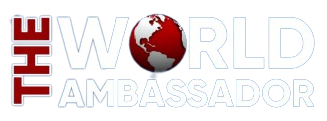By The World Ambassador
TWA
______
Food and Agriculture Organization (FAO) of the United Nations, in collaboration with The Ministry of Maritime Affairs (MoMA), organized a provincial stakeholder consultation workshop on the draft National Fisheries and Aquaculture Policy 2025–2035 at the FAO Khyber Pakhtunkhwa office in Peshawar.
The consultation aimed to gather feedback from provincial stakeholders on the initial draft of the policy, which is being developed to enhance the governance, sustainability, and socio-economic contribution of Pakistan’s fisheries and aquaculture sector. This effort is part of a broader initiative to support food security, economic growth, and responsible natural resource management in line with national development priorities.
Opening the session, Farhan Khan, Assistant Fisheries Development Commissioner MoMA highlighted the urgent need for a national policy to harness the full potential of the sector, increase export earnings, and improve Pakistan’s global seafood market presence.
Participants reaffirmed the government’s commitment to inclusive policymaking through broad-based consultations.
FAO’s support for the policy development process includes technical expertise under the Technical Cooperation Programme Facility (TCPF). The organization is working closely with federal and provincial authorities to promote sustainable fisheries and aquaculture, informed by evidence-based policymaking and aligned with international best practices.
The workshop featured a technical presentation by FAO’s Senior Policy Specialist, who outlined the key principles of the draft policy. These include sustainable and equitable resource use, improved governance and regulation, enhanced productivity, and the mainstreaming of social and environmental considerations across the sector.
Representatives from the fisheries departments of Azad Jammu and Kashmir and Gilgit-Baltistan shared their feedback, emphasizing the importance of mechanisms for financial flows, expenditure tracking, and transparent leasing modalities for inland fisheries.
Participants engaged in focused group discussions and presented their recommendations during a panel session that included sector experts and officials from the Fisheries Development Board (FDB). Their contributions will inform the next phase of policy revision and finalization.
The event brought together more than 70 stakeholders from federal and provincial institutions, civil society, academia, the private sector, and development partners.


